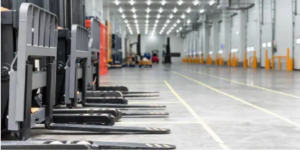Posted on October 2, 2023
Cold stores Adelaide: Cold Stores Facilities
A cold store is a special warehouse for perishables like food, medicines and flowers. These facilities are equipped with advanced technology to preserve the products and ensure their safety for consumption. Outfitting and maintaining such facilities and equipment can be expensive, however.
 Like automated pallet warehouses, cold storage facilities for boxes are designed with racks and mini load stacker cranes that handle goods automatically. It minimizes operator exposure to low temperatures and improves product traceability. For more information about the cold stores facilities Adelaide, click here.
Like automated pallet warehouses, cold storage facilities for boxes are designed with racks and mini load stacker cranes that handle goods automatically. It minimizes operator exposure to low temperatures and improves product traceability. For more information about the cold stores facilities Adelaide, click here.
Refrigeration
Cold stores are logistics solutions that facilitate the storage of products at a controlled temperature to guarantee the conservation of their properties. According to a study from Grand View Research, by 2028, the global market for cold storage warehouses will generate a revenue of $628 billion. These facilities store foods like dairy products, meat, vegetables, medicines, and cosmetics. They require special refrigeration and must be cleaned regularly to prevent the spread of microorganisms that can damage these goods.
As a result, companies that use cold storage warehouses are looking for solutions to maximize space and maintain the required temperature without skyrocketing energy consumption. It is why many choose to use compact racking systems. These systems make better use of space and can hold more pallets in the same area. They also reduce energy costs by distributing cold evenly among the goods.
Some companies are concerned about limiting the time their operators are exposed to cold temperatures, which could have adverse health effects. To minimize this risk, they are turning to cold-storage automation. These facilities use automatic handling equipment such as stacker cranes for pallets, which store and transport products autonomously. These solutions reduce operator exposure to low temperatures and help meet strict turnover and traceability requirements.
In addition to optimizing storage space, these systems can raise productivity by speeding up the movement of goods. They can also reduce the ice needed to keep the goods chilled. In this way, they save money on electricity and water bills and reduce greenhouse gas emissions. For more information about the cold stores facilities Adelaide, click here.
In Australia, cold stores are vital in preserving the nation’s food supply. They provide safe storage for fresh and frozen produce and help local producers meet the demand for high-quality, healthy food. These facilities also provide valuable storage space for international trade, enabling the country to export its goods abroad. A leading Australian cold-storage provider, NewCold, offers secure, reliable and efficient storage in various sizes. Located across the country, its sites provide more than 75 million cubic feet or 300,000 pallet spaces of refrigerated storage.
Airlock systems
Adaptation to strict demands
The food industry is in the midst of a significant shift. The cold chain is becoming more complex, with many steps requiring strict temperature control. It requires more sophisticated warehousing systems and a broader range of services, including tracking and shipping. The challenge is to find space for new cold stores and adapt existing ones to meet this increasing demand. It is not easy because the construction and maintenance of cold store facilities can be expensive. In addition, the equipment used in cold storage must withstand low temperatures, which can damage materials and shorten their life. For example, electric forklifts in sub-zero warehouses lose capacity quickly and have shorter run times. In the case of food, a break in the cold chain could cause the goods to deteriorate or grow bacteria and microorganisms that are harmful to humans.
To keep up with the changing demands, many companies are turning to warehousing specialists that offer value-added services. These companies can help them meet strict food safety requirements, handle high volumes and increase productivity. This way, they can help their customers compete in the global marketplace. These specialists can provide various services, from packaging and labelling to quality assurance and food safety training.
While some cold store operators still use manual management techniques, they increasingly opt for automated racking solutions. These can improve efficiency and maximize storage capacity by minimizing the amount of refrigerated space needed for goods. They also allow for a better control of temperatures.
Moreover, they reduce the risk of worker fatigue. It is because the manual management system can expose workers to extreme conditions for extended periods, which can cause serious health issues. In addition, automated racking can prevent errors that can lead to lost products or spoiled inventory. For more information about the cold stores facilities Adelaide, click here.

